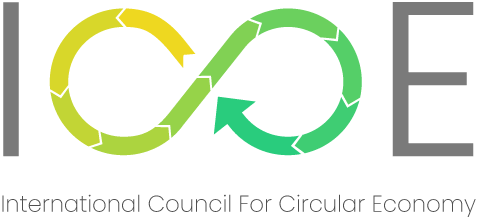State | Country: India
JSW Microfine, a flagship green product from JSW Cement, manufactured from Ground Granulated Blast Furnace Slag (GGBS). By transforming blast furnace slag — a by-product of steelmaking — into a high-performance cementitious material, I make construction more durable, sustainable, and circular.”
JSW Microfine conforms to IS Code 16715 and is designed as a supplementary cementitious material added to concrete mixes alongside cement or other SCMs. With 5–10% dosage by weight, Microfine improves particle packing, cohesion, durability, and long-term strength of concrete, making it especially useful for vertical, strength-critical structures like beams, columns, slabs, and foundations.
The Problem
The construction sector is a major driver of climate and resource pressures:
- 🏢 The built environment contributes ~40% of global GHG emissions.
- 🏭 Traditional Ordinary Portland Cement (OPC) has a high carbon footprint (~740 kg CO₂/ton).
- ⛏️ Cement production depletes natural resources such as limestone and consumes large amounts of energy.
- 🏚️ Concrete durability issues often lead to cracking, repairs, and resource-intensive replacements.
JSW Microfine addresses these challenges by reusing steelmaking by-products, drastically lowering embodied carbon, and delivering long-lasting, resource-efficient construction materials.
Circular Economy Alignment
JSW Microfine is a 100% circular product, repurposing blast furnace slag into sustainable building material. Key alignments include:
- ♻️ Waste-to-Resource: Uses slag, a steel industry by-product that would otherwise go to landfill.
- 🌍 Carbon Savings: Microfine has a GWP of ~60 kg/ton, nearly 90% lower than OPC.
- 🔄 Resource Efficiency: Conserves limestone and other raw materials needed for traditional cement.
- ⚡ Lower Energy Use: Producing Microfine requires less energy than OPC production, reducing coal and power consumption.
- 🏗️ Design for Longevity: Enhances concrete durability, reducing need for repairs/replacements and minimizing lifecycle emissions.
- 🌱 Innovation Legacy: Since 2006, JSW Cement has embedded CE principles by designing all new products around industrial by-products.
By closing the loop between the steel and construction industries, JSW Microfine exemplifies industrial symbiosis in practice.
Impact
🌍 Environmental
- Reduced carbon footprint of concrete by up to 90% compared to OPC.
- Conserved natural resources (limestone, coal, raw minerals).
- Lowered landfill pressure by utilizing slag by-products.
- Helped mitigate urban heat island effects through lighter-colored concrete.
🏢 Economic & Industrial
- Provided developers with high-performance materials to build greener, leaner, and more durable infrastructure.
- Increased workable carpet area through leaner structural design.
- Offered a cost-effective alternative aligned with global green building standards.
👥 Social
- Supported India’s transition to sustainable infrastructure in line with climate goals.
- Promoted awareness and adoption of circular materials in mainstream construction.
JSW Microfine demonstrates how waste can be turned into value. By repurposing blast furnace slag into a high-quality construction material, JSW has reduced emissions, conserved natural resources, and enhanced durability in India’s built environment.
It is not only an innovation in construction materials but also a benchmark for circularity in heavy industry. As developers increasingly seek greener materials, JSW Microfine proves that circular solutions can meet both performance and sustainability goals.
Contact Information
Name: Manoj Rustagi, Chief Sustainability and Innovation Officer
Company: JSW Cement
Address: JSW Centre, Bandra Kurla Complex, Near MMRDA Grounds, Bandra East, Mumbai – 400051
Phone: +91 98700 04680 | +91 22 4286 1000 / 3000
Email: manoj.rustagi@jsw.in
Website: www.jswcement.in
